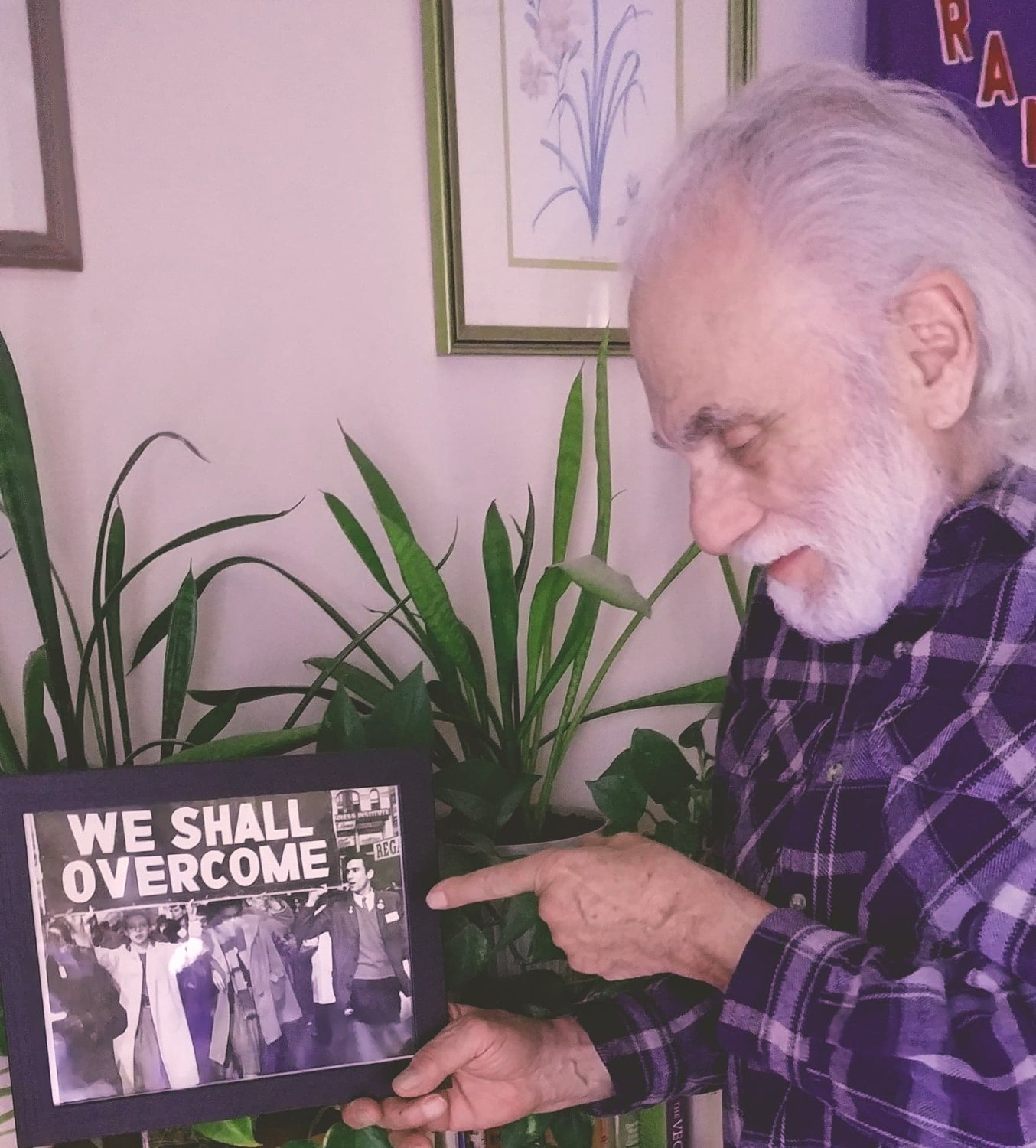V.S. civil rights activist tells his story
On March 7, 1965, protesters trekking the 54 miles from Selma, Ala., to Montgomery, the state capital, to register Black voters were violently confronted by local authorities and white vigilante groups. In the wake of that national tragedy, which became known as Bloody Sunday, civil rights protesters snapped into action around the country.
Eight days later, roughly 15,000 civil rights activists took to the streets of Harlem in a show of solidarity, during which someone snapped a photo of a young man marching in the crowd, holding up a sign that read, “We Will Overcome.”
That man in the photo was local civil rights legend Larry Fox, now 79, marching alongside college students Karen Penner, Willie Espy, Rose Brown and Ralph Penner. All except Fox have since died.
In the 1960s and ’70s, racially motivated violence was taking place not only in far-off Alabama but also in Valley Stream, where acts of intimidation often deterred Black families from moving in. An article in The New York Times on Aug. 16, 1979, detailed a cross burning on the lawn of Inga Grant, a native of Jamaica, and her family, on Woodland Avenue, five weeks after their arrival in the mostly white neighborhood. The Times reported that the family of nine was subjected to obscene calls, threatening letters, and rocks shattering their windows.
Less overt but equally discriminatory behavior was a fact of life, according to Fox. To fight bigoted housing practices and help Black families secure homes, Fox, alongside members of the Long Island chapter of the Congress of Racial Equality, or CORE, would try to catch white homeowners and real estate agents in their uneven dealings with Black customers through a tactic known as “home testing.”
The activists would try to see whether home renters would be more willing to rent to Fox, a
white man — and at a more affordable price —than to a Black man of similar standing.
“They would gladly offer me the apartment at any rate,” Fox recalled. Later in the day, a Black person would come by, ready to rent the home, and be refused. “We’d then have a case” against the home seller, Fox said. “We were major troublemakers … good trouble.”
Even when Fox and his fellow advocates could help a Black family secure a home, Black homeowners were still not in the clear, often encountering various forms of discrimination. Fox and other members of CORE would spend the night in a Black family’s home, keeping watch for acts of vigilante violence or intimidation. One night, in an ironic twist of fate, Fox was at his home on Jamacia Avenue, preparing for just such a watch shift, when it was fired into, he recounted, by racist vigilantes.
Despite that scare, Fox has never deserted the village he’s lived in since 1961. “I don’t run,” he said simply.
Since the mid-1960s, he said, there have been noticeable strides in racial equity and inclusion, as the shifting demographics of Valley Stream show more families of color moving in from nearby Queens and purchasing homes. But the work isn’t finished, Fox notes, and he looks to the new generation of young people of a variety of backgrounds who are tackling the legacy of discrimination and other social ills as part of new social movements such as the Black Lives Matter movement.
Fox’s advice for the new generation of civil rights activists is to get educated, and political. “Dig, dig, dig …,” he said. “Back in the day, we’d lay out five or six newspapers and argue over [whose political position] was right or wrong,” and whether facts were facts.
He was also inspired to take up the civil rights cause by seeking out like-minded people. It was when he joined a Jewish youth group that he was introduced to a program called Justice in Action, focused on empowering young Jewish people to pursue social justice. Since then Fox has tried to live by the group’s mantra: “When one person is injured, all people are.”
The Rev. Dr. Martin Luther King Jr. put it another way: “Injustice anywhere is a threat to justice everywhere.”
Juan Lasso contributed to this article.
Have an opinon about this issue? Send us an email to kkovac@liherald.com.







